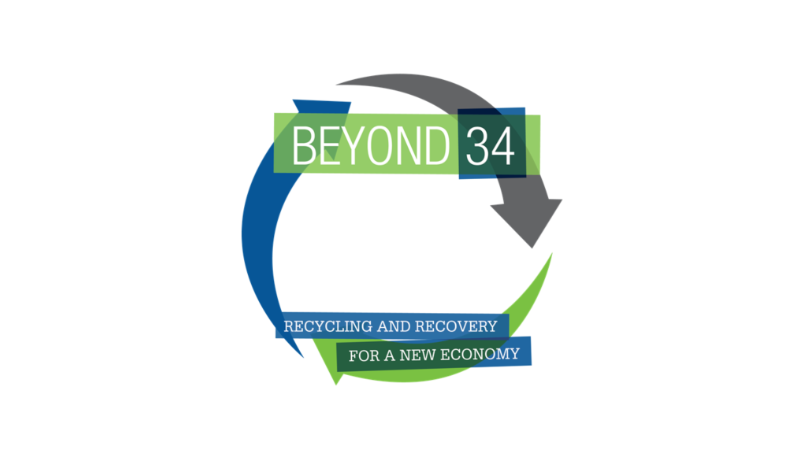U.S. Chamber of Commerce Foundation taps ASU to support sustainability initiative

The U.S. Chamber of Commerce Foundation has announced the growth of its multistakeholder initiative, Beyond 34: Recycling and Recovery for a New Economy. The Rob and Melani Walton Sustainability Solutions Service at Arizona State University has been selected as a technical partner for the project, providing analysis and the development of tools to help communities increase and improve their recycling efforts.
The Beyond 34 initiative aims to increase the current 34 percent recycling rate in the United States by providing a collaborative, data-driven model for local communities to improve recycling and recovery rates.
“The Beyond 34 model brings together a community’s private, public and nonprofit sectors and equips them with data-driven solutions to increase and improve recycling,” said Marc DeCourcey, senior vice president of the U.S. Chamber of Commerce Foundation. “The business community is increasingly setting ambitious waste reduction goals for its operations, and the support we’re receiving for Beyond 34 is helping U.S. communities reduce their impact on the environment and boost local economies.”
Beyond 34 was piloted in the Orlando, Florida, as a as a private-public partnership between the U.S. Chamber of Commerce Foundation, RRS, the Orlando Regional Chamber of Commerce and the city of Orlando. ASU will assist with an expansion to a second city, made possible through the support of the Walmart Foundation, Walgreens Boots Alliance and the Plastics Industry Association.
“To achieve real progress and develop a stronger future, everyone must bring their expertise and resources to the table,” said Patricia Reiter, executive director, Rob and Melani Walton Sustainability Solutions Service at ASU. “We’re looking forward to enabling communities to advance their recycling efforts and move the country that much closer to breaking through the 34 percent recycling rate.”
The Beyond 34 model has three phases: Engage and convene stakeholders from a community’s recycling supply chain; provide the community with a detailed analysis of its waste management system, which includes projects that most effectively increase and improve recycling; and implement the identified projects with seed funding from Beyond 34 and other funds. The scaling effort involves applying a refined version of the Beyond 34 model in a second region based on learnings from the Orlando pilot and developing a suite of online tools and resources so any community can learn about the model and apply it.
The scaling effort will begin in early 2019 and continue through early 2021.

A recent U.S. Environmental Protection Agency report found that in a single year, recycling and reuse activities in the United States accounted for 757,000 jobs, $36.6 billion in wages and $6.7 billion in tax revenues. Still, there are a number of challenges to recycling — falling commodity prices, contaminated recycling streams, strained government budgets and fewer markets for materials. Application of the Beyond 34 model helps communities overcome these challenges.
The U.S. Chamber of Commerce Foundation is dedicated to strengthening America’s long-term competitiveness. They educate the public on the conditions necessary for business and communities to thrive, how business positively impacts communities and emerging issues and creative solutions that will shape the future.
The U.S. Chamber of Commerce is the world’s largest business federation representing the interests of more than 3 million businesses of all sizes, sectors, and regions, as well as state and local chambers and industry associations.
The Rob and Melani Walton Sustainability Solutions Service at Arizona State University is the result of an investment by the Rob and Melani Walton Foundation to advance sustainability solutions locally and globally. The Rob and Melani Walton Sustainability Solutions Service engages diverse teams of faculty, students, entrepreneurs, researchers and innovators to collaborate and deliver sustainability solutions throughout the globe, to provide learning opportunities for future and current sustainability leaders, and to engage audiences of all ages to take action on and celebrate sustainability solutions. For more information visit sustainabilitysolutions.asu.edu.
More Environment and sustainability

From environmental storytelling to hydroponics, student cohort crafts solutions for a better future
A select group of students from Arizona State University's College of Global Futures, a unit within the Julie Ann…

2 ASU faculty elected as AAAS Fellows
Two outstanding Arizona State University faculty spanning the physical sciences, psychological sciences and science policy have…

Homes for songbirds: Protecting Lucy’s warblers in the urban desert
Each spring, tiny Lucy’s warblers, with their soft gray plumage and rusty crown, return to the Arizona desert, flitting through…

